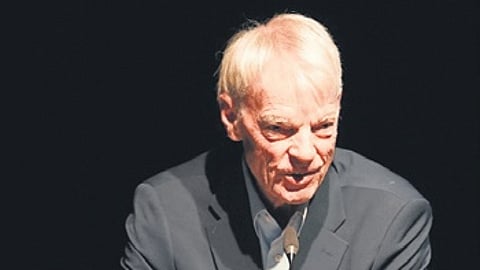

BENGALURU: The Indian economy is not facing short of labour compared to other advanced countries and this is a big advantage, said Nobel Laureate in Economics, Michael Spence, on Thursday. He added that the digital economy architecture that India has built through Aadhaar (biometric identification) and UPI payment system is something that is going to be “exported to the world”. India went from the highest data rates to the lowest data rates in the world almost overnight because of Aadhaar, he added.
“When I say exported, I don’t mean India is going to build other people’s infrastructure. The existing model with the UPI is going to be replicated. China got their first mobile payments before any of us but that architecture was made by two big private entities – the repository of the data, the ability to do the credit, scoring and everything was a threat to banks. Whereas the Indian model takes the institutions and voluntarily allows a level playing field. So I think it’s a brilliant achievement,” Spence said in a conversation with Anurag Behar, CEO, Azim Premji Foundation, during a public lecture series.
The Noble Laureate spoke on ‘Artificial Intelligence in the age of uncertainty’ and how AI will shape the future of work, responsible data management and India’s potential. Spence was also optimistic that AI will not replace jobs completely in all industries but will automate some tasks that will still need human intervention. Speaking about the threats of AI , he listed three aspects – overcrowding the system with rubbish, misuse of AI in warfare and issues with data.
“There is a lot of flooding in the system which is essentially rubbish, and people have great difficulty understanding and distinguishing from real content. These technologies have enormously powerful uses in national security, warfare, defence, and so on. The first thing we ought to do is have treaties and agree that we will never use a fully autonomous weapon. Then there is data security, privacy, and the responsible use of data,” he said.
LECTURE AT IIMB
Spence also delivered a lecture at the Indian Institute of Management (IIM-B) on the role of India in the world economy. During the conversation, the relevance of his contributions to Microeconomics for which he received the Nobel Prize was also discussed. He spoke about his book ‘Permacrisis’, and highlighted that the world economy has gone through a tectonic shift since the pandemic and now faces a permacrisis (multiple crises simultaneously).